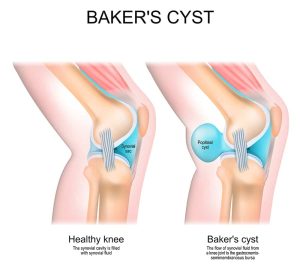

Frozen Shoulder, also known as Adhesive Capsulitis, is a common and painful shoulder condition that involves the inflammation and contracture of the shoulder capsule, leading to restricted movement and severe discomfort. The condition typically progresses through three stages—freezing, frozen, and thawing—and can last anywhere from several months to years. Frozen shoulder most commonly affects individuals between the ages of 40 and 60, and is more prevalent in women than in men.
At York-Med Physiotherapy & Wellness Centre, we specialize in the diagnosis and rehabilitation of Frozen Shoulder. Our team of experienced registered physiotherapists employs evidence-based techniques to develop customized treatment plans designed to reduce pain, restore shoulder movement, and enhance functional recovery.
The exact cause of Frozen Shoulder remains unknown, but several factors are known to increase the likelihood of developing the condition. Diabetes is one of the most significant risk factors, with diabetic individuals being more prone to experiencing adhesive capsulitis. Other conditions that may increase the risk include:
Pain: The pain associated with frozen shoulder may vary in intensity, from dull and aching to sharp and stabbing. This pain often worsens with shoulder movements and can significantly impact daily activities.
Restricted Range of Motion: One of the hallmark signs of frozen shoulder is a severe limitation in the ability to move the shoulder in various directions.
Stiffness: The shoulder becomes increasingly stiff, making it difficult to perform routine actions such as reaching overhead or behind the back.
Physiotherapy Management of Frozen Shoulder
At York-Med Physiotherapy & Wellness Centre, our registered physiotherapists provide a comprehensive assessment of your shoulder condition. We evaluate not only the shoulder joint but also the surrounding muscles and tissues to create a personalized treatment plan tailored to your specific needs.
Treatment for Frozen Shoulder depends on the stage of the condition. Typically, the physiotherapy approach includes:
Pain Reduction: Techniques such as manual therapy, modalities (e.g., ultrasound therapy), and heat or cold therapy are used to help reduce pain and inflammation in the shoulder joint.
Range of Motion Exercises: As frozen shoulder limits the movement of the shoulder, gentle mobilization exercises are implemented to gradually improve the range of motion. These exercises are carefully progressed to avoid further irritation.
Strengthening Exercises: Once the pain and stiffness are addressed, we focus on strengthening the muscles surrounding the shoulder to improve its functional capacity and prevent future injury.
Posture and Mobility Training: Poor posture and movement patterns can contribute to frozen shoulder symptoms. Our physiotherapists assess your posture and mobility, and provide exercises to improve alignment and functional movement.
Patient Education: We educate you on lifestyle modifications and ergonomic adjustments to manage and prevent recurrence of frozen shoulder symptoms.
At York-Med Physiotherapy & Wellness Centre, we offer a holistic and evidence-based approach to the treatment of Frozen Shoulder. Our team of skilled physiotherapists takes the time to thoroughly assess your condition and create a personalized treatment plan that addresses the unique needs of your shoulder.
Comprehensive Assessment: We conduct a detailed physical examination to understand the extent of your symptoms and customize the treatment to your stage of recovery.
Hands-on Manual Therapy: Our therapists use advanced manual therapy techniques to mobilize the shoulder joint and relieve tension in the surrounding muscles.
State-of-the-art Techniques: We use the latest treatment modalities to reduce inflammation and promote faster healing.
Patient-Centered Care: We prioritize your comfort, ensuring that your recovery plan is tailored to your goals, whether it’s returning to work, sports, or simply performing everyday activities without pain.
If you are suffering from Frozen Shoulder or suspect you may have this condition, don’t delay seeking treatment. York-Med Physiotherapy & Wellness Centre offers effective, individualized treatment plans designed to reduce pain and restore shoulder mobility. Contact us today to schedule an appointment and take the first step toward a pain-free life. Our dedicated team is here to help you recover and regain your full range of motion.
© 2020 York-Med Physiotherapy and wellness center | Richmond Hill & Vaughan. All Rights Reserved.
Designed by Magham Agency